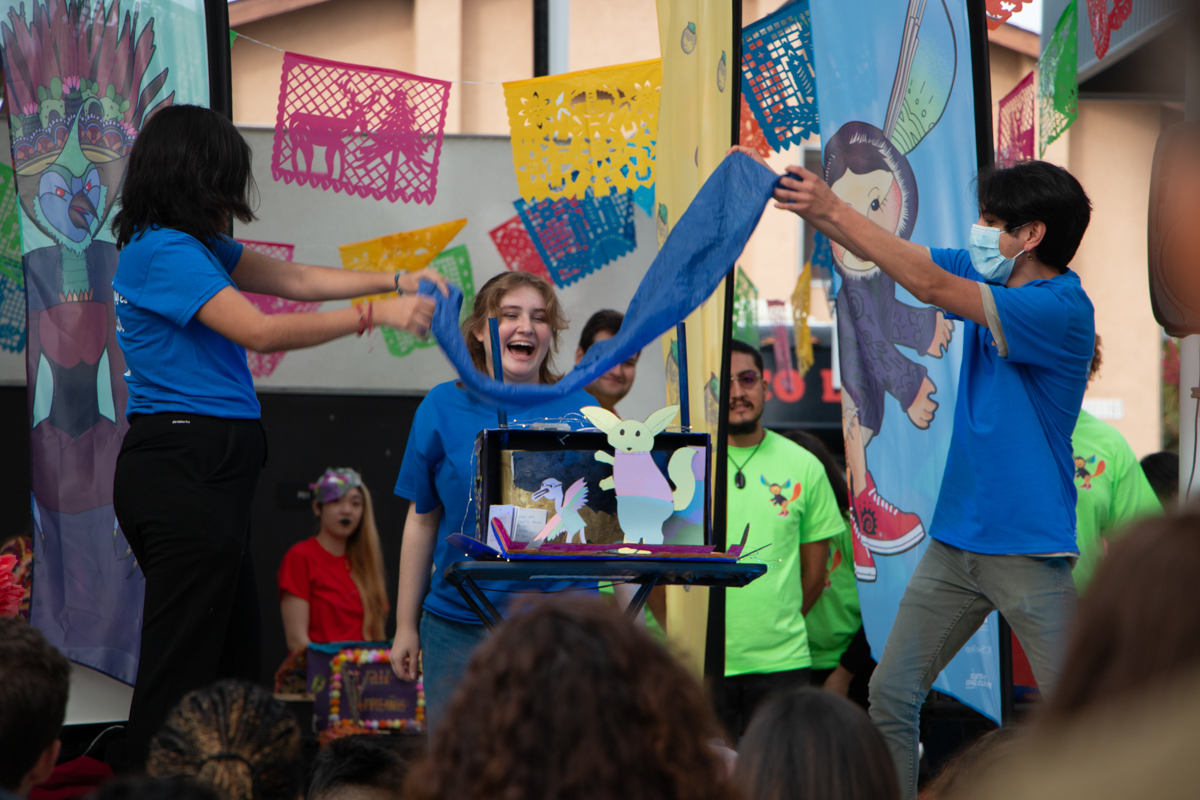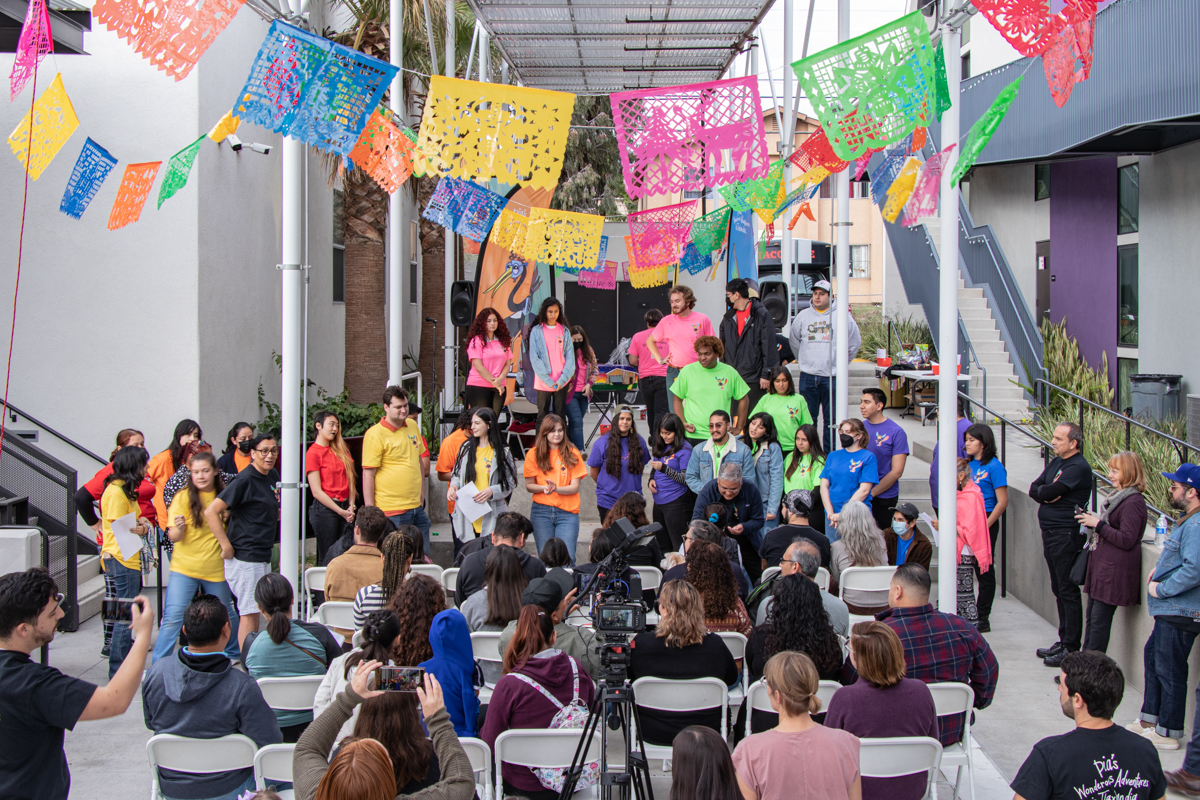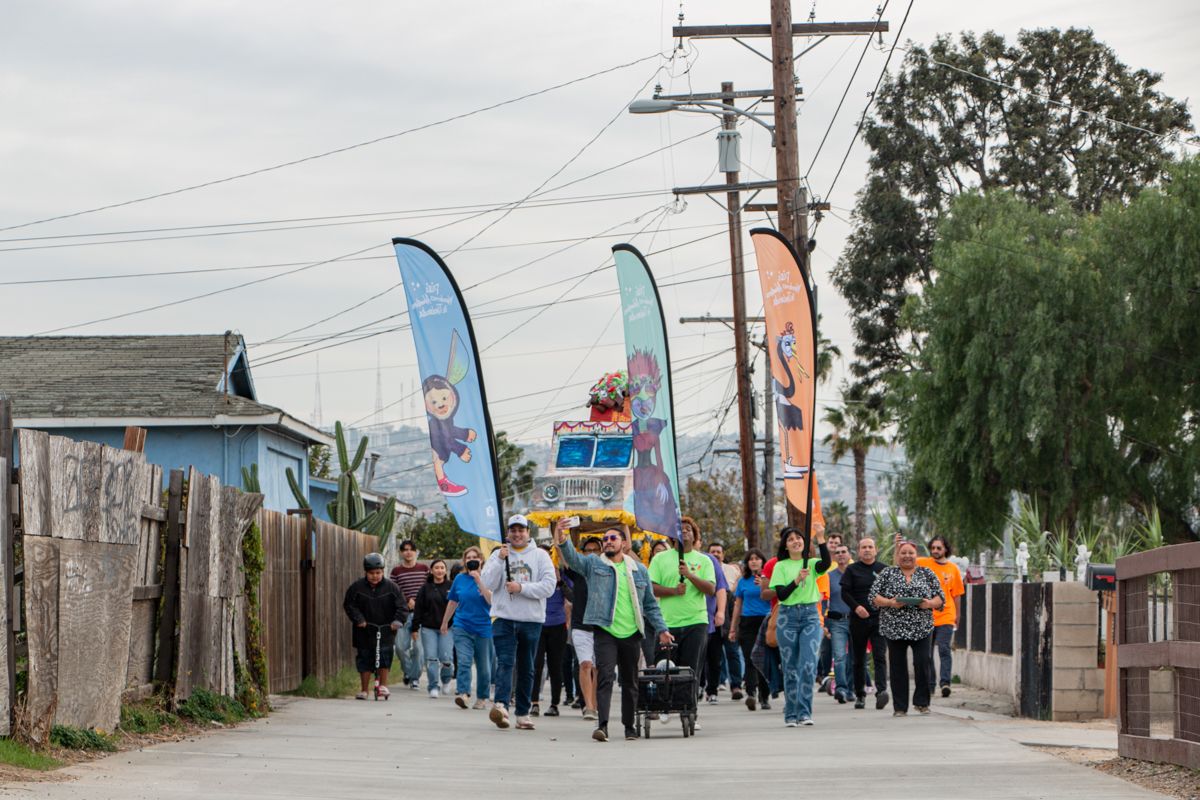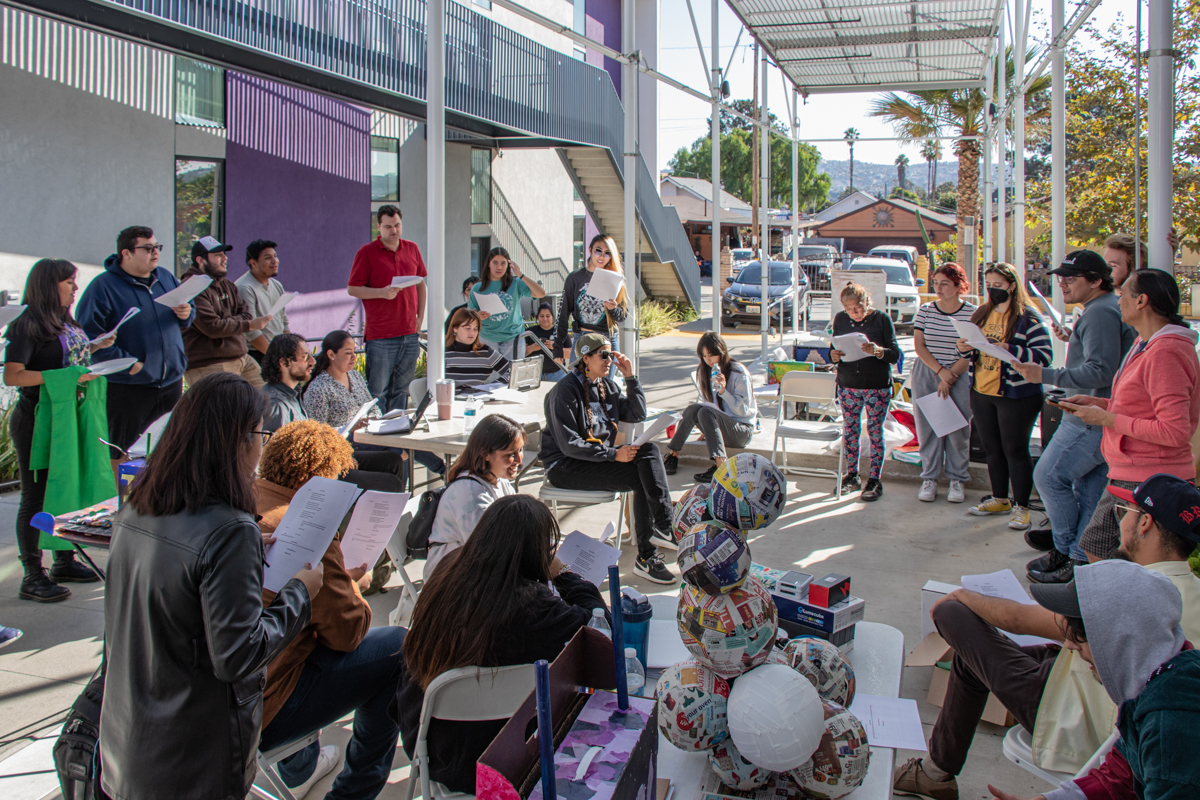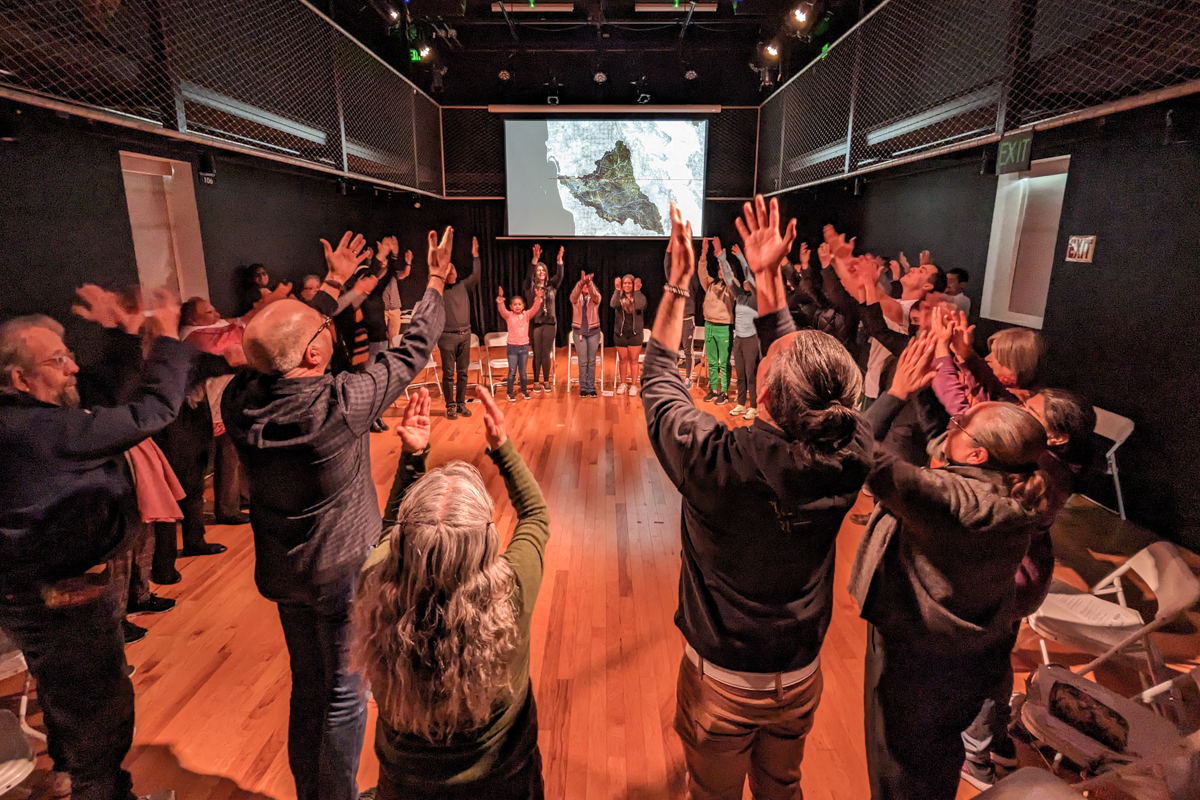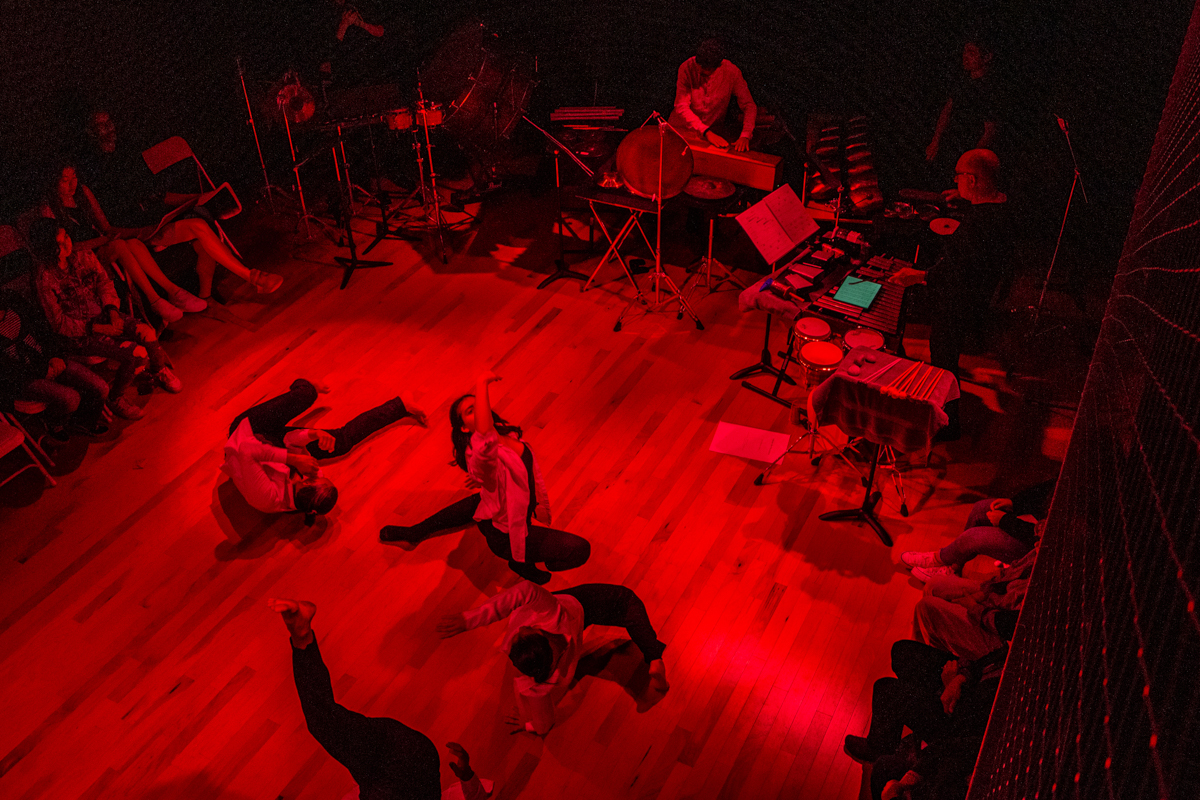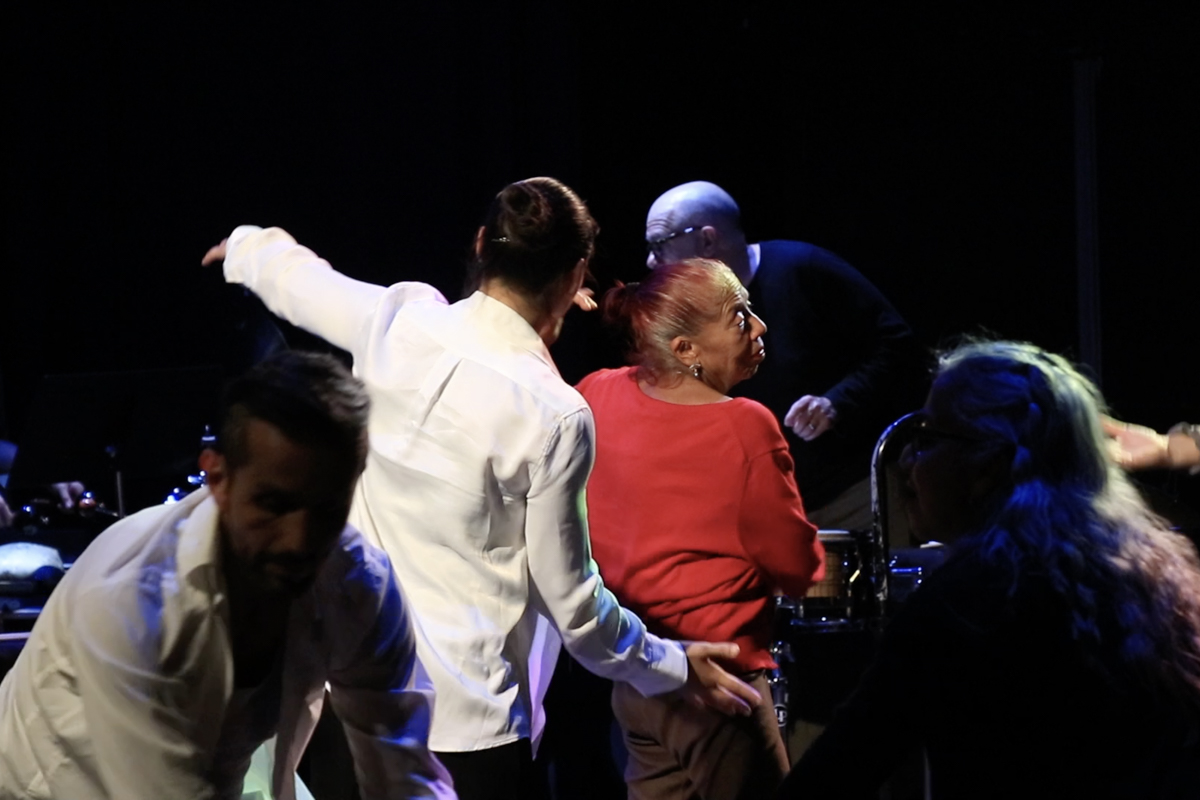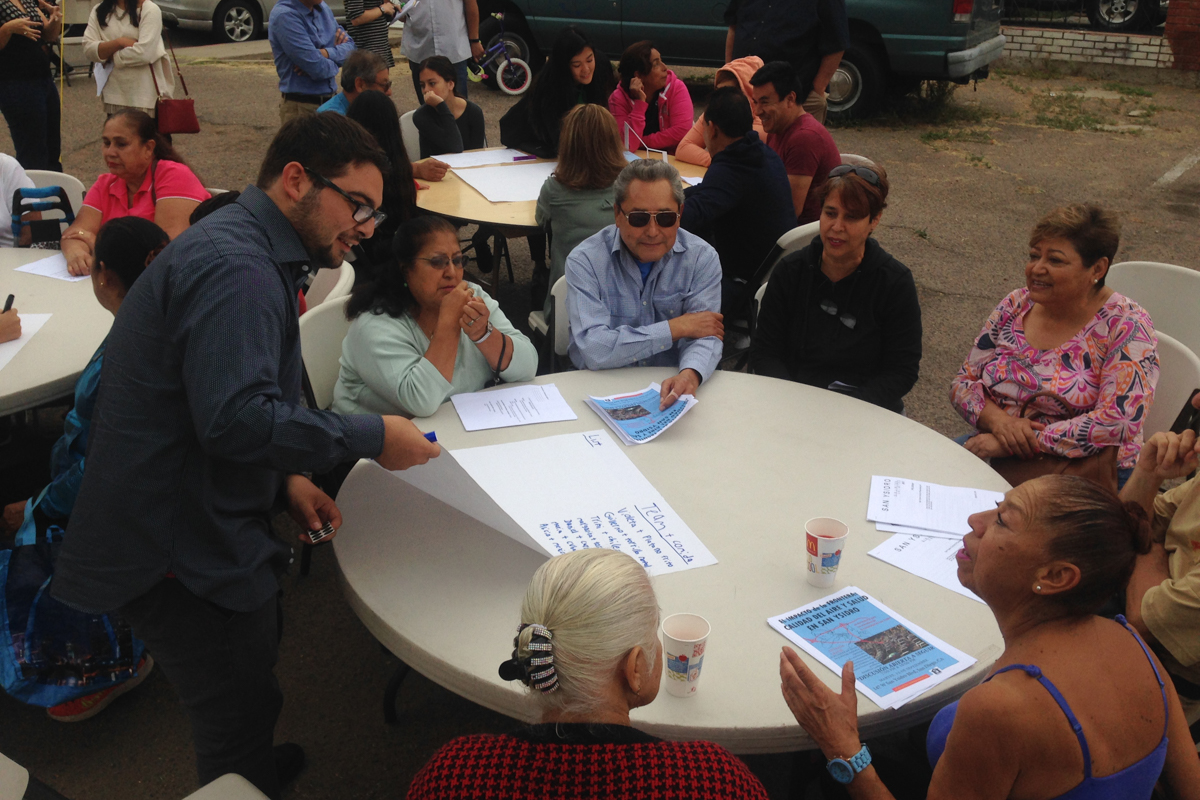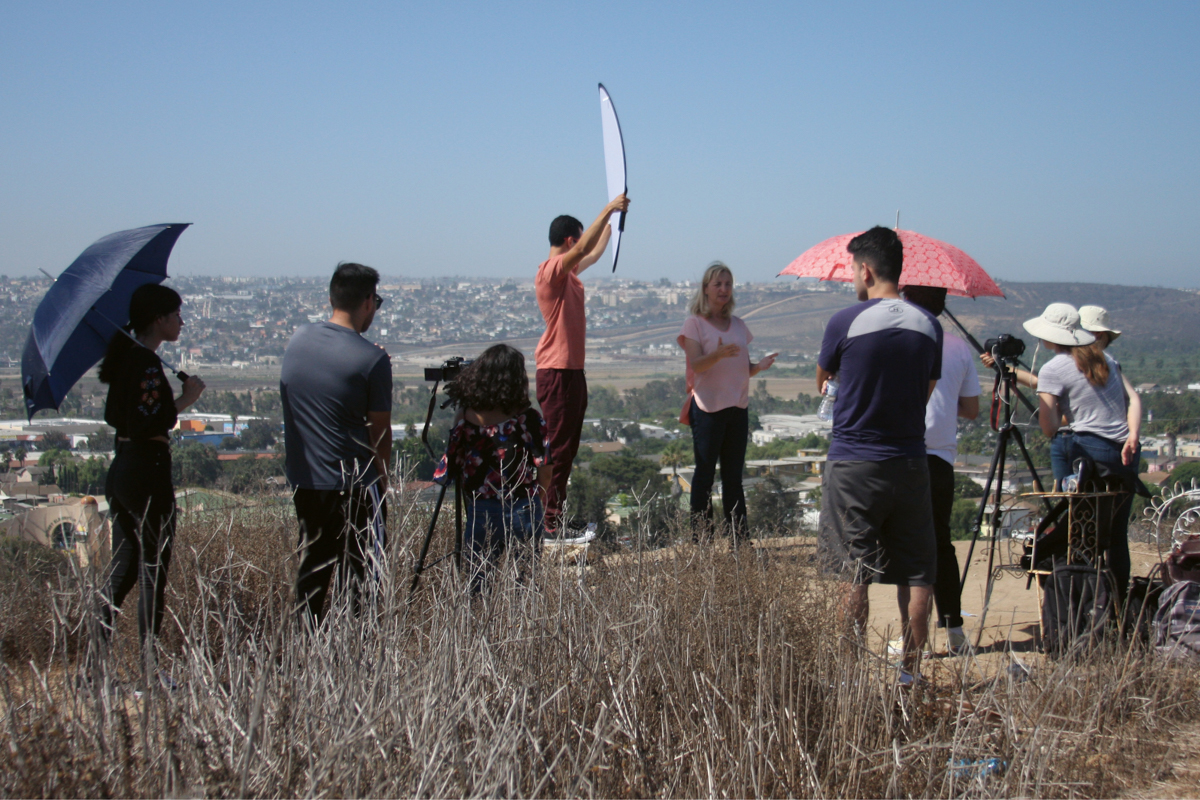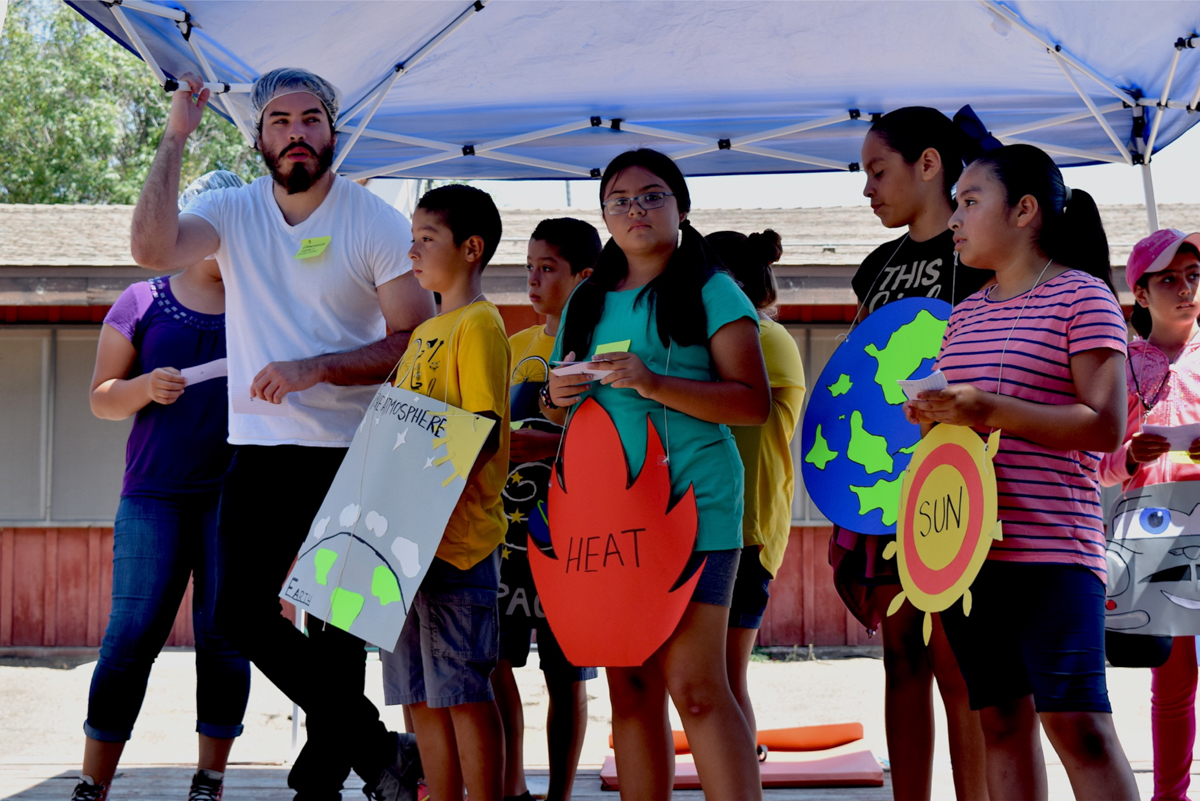Urban Pedagogy for Neighborhood Advocacy
Inspired by the cultural strategies of critical pedagogy, educational programming at the UCSD–Casa Community Station focuses on pedagogical processes that increase public knowledge, and community capacity for political and environmental advocacy and action. UC San Diego researchers and students partner closely with community activists, promotoras, residents and especially youth, to assemble urban narratives of every-day life and other bottom-up urban data that are difficult to access through conventional university-based research methods. Ethnographic skills of building trust, listening, documenting, learning, and visualizing enable us to better understand the rich, rooted-knowledges of the community, and the challenges it faces. This knowledge then becomes evidence that we visualize, and disseminate culturally through arts and culture, as tools for public communication and policy advocacy. Arts & culture that can change hearts and minds in ways that hard data cannot.
For example, UC San Diego MFA student, Andrew Sturm, wanted to expose unjust air quality issues faced by communities located close to the border checkpoint, where hundreds of thousands of cars idle each week, sometimes for hours, as they wait to cross the border. He wanted to understand how the residents of San Ysidro experienced this injustice, and he invited them to share their stories. One resident introduced us to his backyard, where he had planted a lemon grove many years earlier. The fruits were covered in black silt from the polluted air. The Border Lemons Story became an important cultural strategy for mobilizing awareness of the air quality problem within the community as well as the institutions that govern air quality policy.
